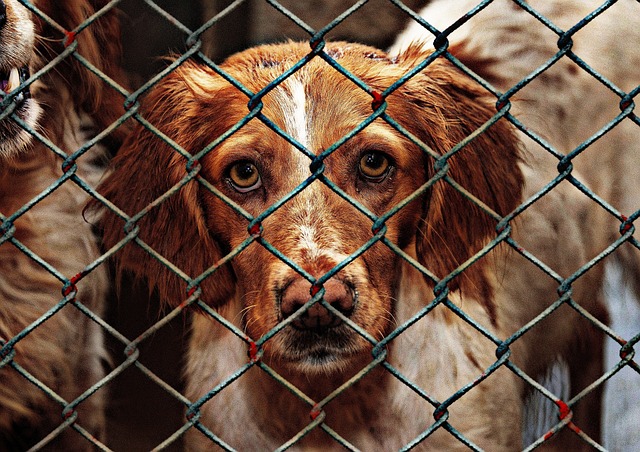Are you looking for a How To Stop Animal Abuse Essay? Then you have come to the right place.
Read on.
Introduction
Animal abuse is a serious issue that affects millions of innocent creatures worldwide. Our responsibility as compassionate individuals is to stand against this cruel and unjust treatment. Working together can bring about meaningful change and ensure a brighter, more compassionate future for all animals. This essay explores effective strategies to stop animal abuse, highlighting the importance of education, legislation, and individual action.
How To Stop Animal Abuse Essay
What is Animal Abuse?
Animal abuse refers to the injustice, harm, or neglect of animals, intentional or unintentional. It can take various forms, such as physical abuse, neglect, abandonment, and cruelty.
Why Does Animal Abuse Matter?
Animal abuse is a significant concern due to animals’ inherent value and rights and the adverse impact on their well-being. Animals experience pain, fear, and suffering, just like humans, and our moral duty is to protect them.
Educating for Empathy: Spreading Awareness and Compassion
The Importance of Animal Welfare Education
One of the most crucial steps toward ending animal abuse is through education and raising awareness. Educating individuals, particularly at a young age, about the importance of empathy and compassion towards animals can promote a generation that values and respects all living beings.
Incorporating Animal Welfare in Schools
Schools should include animal welfare education in their curriculum, teaching students about animals’ needs, emotions, and rights. This education can help students develop empathy, critical thinking skills, and a sense of responsibility towards animals.
Promoting Humane Education Programs
Humane education programs and organizations are vital in teaching students about animal abuse and promoting compassion. These programs can include workshops, interactive activities, and field trips to animal shelters or sanctuaries, providing hands-on experiences and opportunities for learning.
The Power of Legislation: Strengthening Animal Protection Laws
The Need for Strong Animal Protection Laws
To effectively combat animal abuse, robust legislation is essential. Governments must enforce strict laws that protect animals from harm and ensure that those who engage in animal cruelty face severe consequences.
Banning Cruel Practices
Animal protection laws should include various aspects, such as banning cruel practices like dogfighting, cockfighting, and trophy hunting. Such practices cause immense suffering to animals and have no place in a compassionate society.
Regulating Industries
Legislation should also focus on regulating industries involved in animal exploitation, such as the fur and cosmetics industries. Stricter regulations can help prevent the use of animals in cruel experiments and encourage the development and adoption of alternative testing methods.
Raising Awareness through Media and Advocacy
The Role of Media in Raising Awareness
Media platforms and advocacy organizations are important in raising awareness about animal abuse. Through television, social media campaigns, documentaries, and other forms of media, the suffering experienced by animals can be brought to light.
Animal Advocacy Organizations
Animal advocacy organizations should work together to initiate public campaigns, promote ethical choices, and encourage people to actively participate in ending animal abuse. These organizations can organize peaceful protests, distribute informational materials, and collaborate with influential individuals to raise awareness.
Engaging Social Media Influencers
The use of social media influencers can be an effective strategy to reach a broader audience, particularly among young people. Collaborating with influencers passionate about animal welfare can help spread the message of compassion and encourage positive action.
Promoting Responsible Pet Ownership
Addressing Domestic Animal Abuse
Animal abuse is often prevalent in the context of domestic pets. Responsible pet ownership is crucial in reducing neglect, abandonment, and mistreatment.
Educating on Pet Care
Educational programs should emphasize the importance of providing pets with proper care, nutrition, and medical attention. Teaching individuals about the needs of different types of animals, such as dogs, cats, and small mammals, can help ensure their well-being and prevent abuse.
Spaying and Neutering
Promoting the importance of spaying and neutering pets is essential in controlling the pet population. This practice helps prevent unwanted litter and has health benefits for the animals.
Adoption and Rescue
Encouraging pet adoption from shelters and rescue organizations can reduce animal demand from unethical breeders and pet stores. By adopting a needy pet, individuals provide a loving home while contributing to the fight against animal abuse.
Encouraging Ethical Choices: The Power of Consumer Demand
Understanding Consumer Impact
Consumer demand greatly influences industries that exploit animals for entertainment, food, clothing, or testing. By making conscious choices, individuals can contribute to reducing animal abuse.
Choosing Cruelty-Free Products
Opting for cruelty-free products, such as cosmetics and household items, can significantly reduce animal testing and its suffering. Look for labels indicating that products are not tested on animals and support companies prioritizing ethical practices.
Supporting Ethical Farming and Food Choices
Supporting ethical farming practices, such as organic and free-range options, reduces the demand for factory-farmed products. This choice helps combat animal cruelty in the agricultural industry and promotes a more sustainable and compassionate approach to food production.
Alternatives to Animal Entertainment
Avoiding activities that exploit animals for entertainment, such as circuses with performing animals or marine parks with captive dolphins, is a powerful way to take a stand against animal abuse. Instead, support forms of entertainment that prioritize animal welfare, such as nature documentaries and wildlife conservation initiatives.
Conclusion
How To Stop Animal Abuse Essay concludes that Ending animal abuse is a collective responsibility that requires a multifaceted approach. Education, legislation, media campaigns, responsible pet ownership, and consumer choices are crucial in creating a more compassionate society. By instilling empathy and respect for animals, enforcing strong laws, raising awareness, and making ethical choices, we can pave the way for a world where animals are treated with kindness and compassion.
Let us stand against animal abuse, advocating for their rights and working towards a brighter future for all living beings. Together, we can significantly impact and create a world where animals are valued, protected, and free from cruelty.
Also Read:
